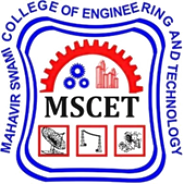Computer Engineering Program
Intake:60
Computer engineering, essentially, is an integrated field of engineering which combines aspects of electronic engineering with computer sciences. It is mainly bifurcated into two parts – Hardware Engineering and Software Engineering. As the name reflects, hardware engineering is all about constructing a small microchip for large scientific computers. Software engineering covers designing and constructing software for various purposes.
It is difficult to define computer engineering in a statement due to the extensive nature of this field. Computer engineers undertake a variety of responsibilities depending on the industry and their place of employment, ranging from the manufacturing of microprocessors to creating and designing computer programs and algorithms.
It is mandatory to have a PCM background in 10+2 to take up computer engineering in graduation. For postgraduation courses, it is mandatory to have the same background during graduation.
